
Cluj-Napoca, or simply Cluj, is the fourth-most populous city in Romania. It is the seat of Cluj County in the northwestern part of the country. Geographically, it is roughly equidistant from Bucharest, Budapest and Belgrade. Located in the Someșul Mic river valley, the city is considered the unofficial capital of the historical province of Transylvania. From 1790 to 1848 and from 1861 to 1867, it was the official capital of the Grand Principality of Transylvania.
Vintilă Horia was a Romanian writer, winner of the Prix Goncourt. His best known novel is God Was Born in Exile (1960).

Așchileu is a commune in Cluj County, Transylvania, Romania. It is composed of five villages: Așchileu Mare, Așchileu Mic (Kisesküllő), Cristorel (Ördögkeresztúr), Dorna (Dorna) and Fodora (Magyarfodorháza).

Ovidiu Coriolan Pecican is a Romanian historian, essayist, novelist, short-story writer, literary critic, poet, playwright, and journalist of partly Serbian origin. He is especially known for his political writings on disputed issues such as regional autonomy for Transylvania, and for his co-authorship of a controversial history textbook for 11th and 12th grade high-school students.
The history of Cluj-Napoca covers the time from the Roman conquest of Dacia, when a Roman settlement named Napoca existed on the location of the later city, through the founding of Cluj and its flourishing as the main cultural and religious center in the historical province of Transylvania, until its modern existence as a city, the seat of Cluj County in north-western Romania.
Andrei Marga is a Romanian philosopher, political scientist, and politician. Rector – for the second time – of the Babeș-Bolyai University in Cluj-Napoca, he was a member of the Christian Democratic National Peasants' Party (PNŢCD), serving as Minister of Education in the Democratic Convention (CDR) coalition governments of Victor Ciorbea, Radu Vasile, and Mugur Isărescu (1997–2000). In January 2001, he replaced Ion Diaconescu as PNŢCD president, but resigned from this position in July 2001, amid political tensions within the party. He subsequently formed a new political party, more specifically the Popular Christian Party later during the same year. Later on, he became a member of the National Liberal Party (PNL).
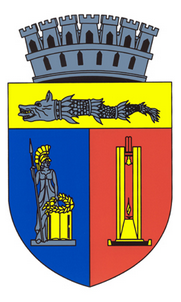
The coat of arms of Cluj-Napoca is the heraldic symbol standing for the city of Cluj-Napoca, Romania. The city's first recorded coat of arms dates back to 1369, and since then, the coat of arms has mostly kept its features, until 1948. In 1970 a new coat of arms was designed by the communist authorities, inserting the original heraldic symbol.

The Lucian Blaga Central University Library of Cluj-Napoca serves Babeș-Bolyai University in Romania.
Camil Bujor Mureşanu was a Romanian historian, professor, author, and translator.
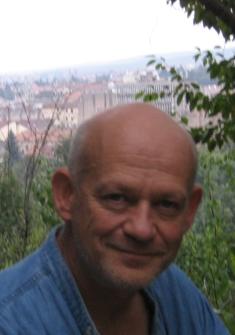
François Bréda was a Romanian essayist, poet, literary critic, literary historian, translator and theatrologist.
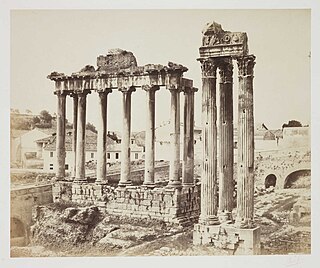
Romanian archaeology begins in the 19th century.
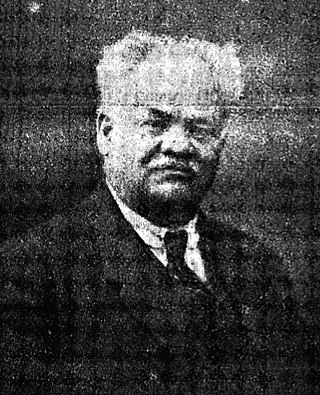
Gheorghe Bogdan-Duică was an Imperial Austrian-born Romanian literary critic. The son of a poor merchant family from Brașov, he attended several universities before launching a career as a critic, first in his native town and then in Czernowitz. Eventually settling in Bucharest, capital of the Romanian Old Kingdom, he managed to earn a university degree before teaching at a succession of high schools. Meanwhile, he continued publishing literary studies as well as intensifying an ardently nationalistic, Pan-Romanian activism. He urged the Romanian government to drop its neutrality policy and enter World War I; once this took place and his adopted home came under German occupation, he found himself arrested and deported to Bulgaria. After the war's conclusion and the union of Transylvania with Romania, he became a literature professor at the newly founded Cluj University. There, he served as rector in the late 1920s, but found himself increasingly out of touch with modern trends in literature.

Nicolae Drăganu was an Austro-Hungarian-born Romanian linguist, philologist, and literary historian.
Matei Zaharia Boilă was a conservative Romanian politician, who later became a Greek Catholic priest. Boilă was influenced by the activity of his great uncle on his mother's side of the family, Iuliu Maniu, a Prime Minister of Romania. He represented the Christian Democratic National Peasants' Party (CDNPP) in the Senate between 1992 and 2000.
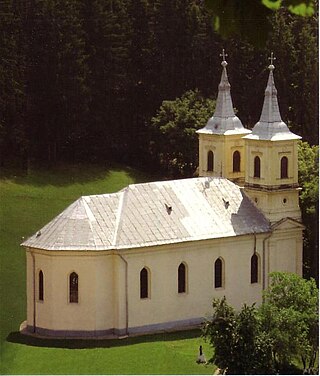
Nicula Monastery is an important pilgrimage center in the north of Transylvania. It is located in Nicula village, Cluj County, in the vicinity of Gherla.
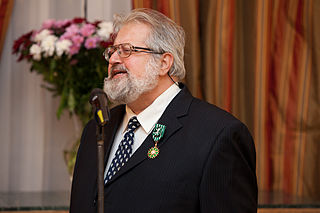
Andrei-Nicolae Pippidi is a Romanian historian and Professor Emeritus at the University of Bucharest, specialised in South-Eastern European history of the 15th–19th century, in Romanian history of the Middle Ages and the Early Modern Period, and in the relationship between South-Eastern Europe and the Occident.
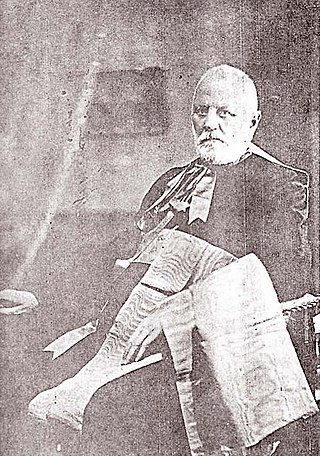
Noble Tit Bud de Budfalva was an Imperial Austrian-born Romanian Greek Catholic priest, author, folklorist, translator, historian, aristocrat, vicar of Maramureș, director of the Boarding school of Sighet, vice-president of the "Association for the culture of the Romanian people from Maramureș" and president of the "Organization of Romanian teachers from Maramureș". He spoke seven languages.
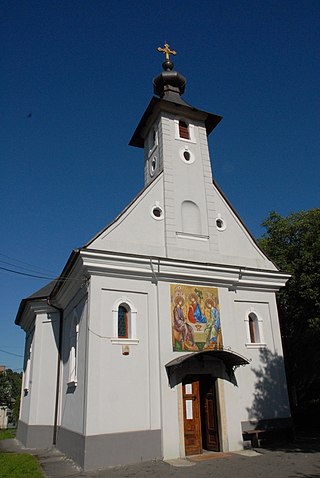
The Church on the Hill is a Romanian Orthodox church located at 10 Bisericii Ortodoxe Street, Cluj-Napoca, Romania. It is dedicated to the Holy Trinity.

The Toplița Monastery is a Romanian Orthodox monastery located at 68-70 Ștefan cel Mare Street in Toplița, Romania. It is dedicated to the Prophet Elijah.

Zoltán Felvinczi Takács was a Hungarian art historian. His research interests include the paintings of Albrecht Dürer, Oriental art, and art criticism.













